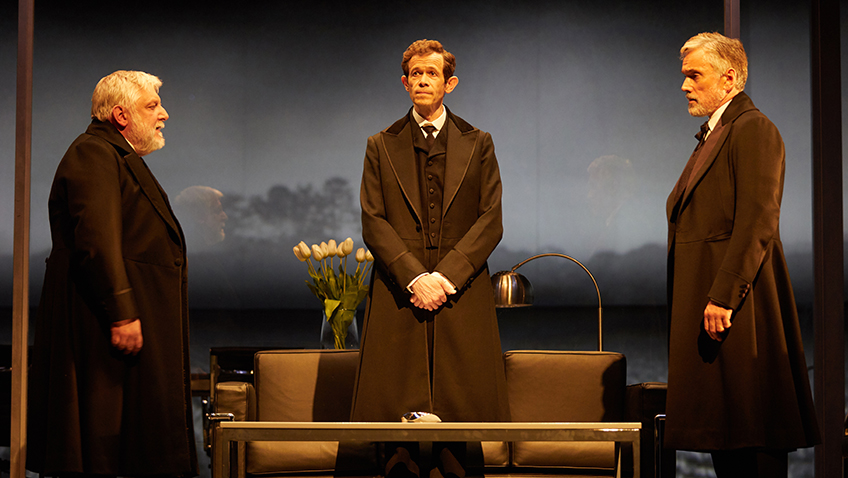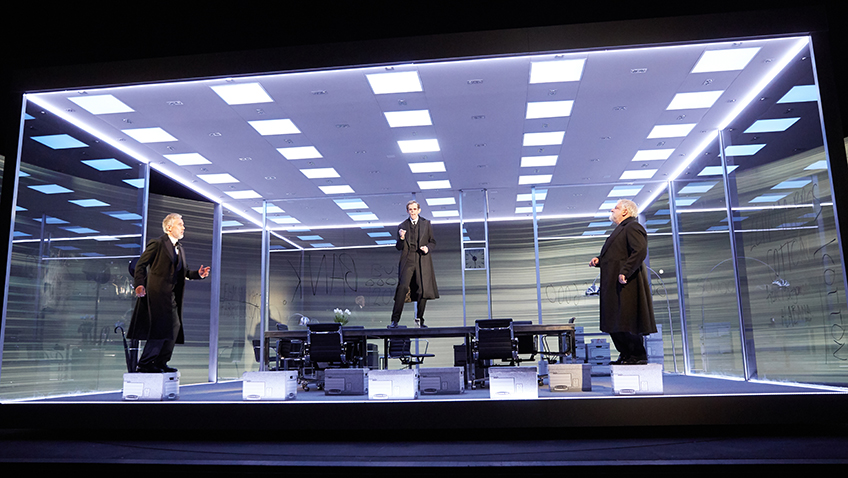Robert Tanitch reviews The Lehman Trilogy at National Theatre/Lyttelton
Lehman Brothers, the ultimate middle-men, have figured in many books, films, documentaries and even cartoons. Their bankruptcy triggered the largest financial crisis in history.
Stefano Massini’s epic play, which premiered in Paris in 2013, has been a big hit in Europe.
Ben Power has adapted and edited it considerably. There are just three actors in his version, which was specially created for the National Theatre. Power is deputy artistic director of the National Theatre.
The story begins in 1844 and ends in 2006. It is told in three parts with two intervals, lasting 3 hours and 30 minutes, and that includes the intervals.
The brothers start a tiny one-room store in Montgomery, Alabama, buying and selling raw cotton. They relocate in New York and go into agriculture, industry, coffee, railways, banking; and invest in the King Kong movie and the Panama Canal. They don’t work to live. They live to work.
A major surprise is that the text is mainly narrative and that so much of it, with its refrains and repetitions, is so poetic. There is very little dialogue. There is no indictment of capitalism. The pleasure comes from the theatricality of the production and the exciting performances.
Sam Mendes’s minimalist and expressionistic production has class. The action takes place in a rotating compartmentalised glass box. Much use is made of cardboard boxes, one of the defining images of the crash. The designer is Es Devlin. The back wall is a huge cyclorama of landscapes and cityscapes. The video designer is Luke Halls.
Adam Godley, Ben Miles and Simon Russell Beale play the hard-working Bavarian brothers, their sons and grandsons, who gradually discard their Jewish rituals.
Verbally and physically versatile, wittily assured, they play all the other characters. The characterisation is the briefest of brief sketches, often amusing, in which they switch gender to become potential brides and switch age to become children.
 They never change their costumes. They remain in the same frockcoats throughout and rely on the simplest of gestures. The most striking single image is Robbie Lehman’s dance of death performed by Adam Godley.
They never change their costumes. They remain in the same frockcoats throughout and rely on the simplest of gestures. The most striking single image is Robbie Lehman’s dance of death performed by Adam Godley.
I shall be very surprised if Sam Mendes’s clever production does not find its way to New York.
To learn more about Robert Tanitch and his reviews, click here to go to his website





